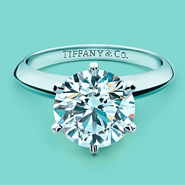- About
- Subscribe Now
- New York,
July 1, 2013

Jeweler Tiffany & Co. and U.S. label Michael Kors are the most widely purchased jewelry and fashion brands by ultra-affluent women in the United States, according to a new survey from The Luxury Institute.
This new data found that many of the brands that ultra-affluent men and women are purchasing are the brands with whom they have good relationships. Although male consumers do not build strong relationships with salespeople like their female counterparts, luxury retailers should not ignore their male customers.
"Luxury brands have a huge opportunity to cultivate relationships with affluent men," said Meera Raja, director of The Luxury Institute, New York.
"Although some brands have opened dedicated men’s stores and others are expanding their product offerings, building long-term relationships with this new breed of luxury spenders should be a major focus," she said.
The Luxury Institute surveyed ultra-wealthy U.S. consumers with a minimum net worth of $5 million about luxury brands that they buy and the relationship they have with luxury sales professionals.
Building relationships
The survey found that the top three most widely purchased jewelry brands by ultra-affluent women are Tiffany, David Yurman and Cartier.
These brands are also the top three jewelers where ultra-affluent women said they have a preferred salesperson.
For fashion brands, Michael Kors takes 36 percent of the market share of ultra-affluent women’s luxury fashion brand purchases.
Michael Kors spring/summer 2013
Other top ranked brands are Prada, Burberry, Louis Vuitton, Chanel, Gucci and Marc Jacobs.
Furthermore, Ralph Lauren and Brooks Brothers have the largest market share in ultra-affluent men’s luxury fashion purchases.
Ralph Lauren Black label
The survey also found that ultra-affluent men are less likely than ultra-affluent women to build relationships with salespeople.
However, both men and women agree that luxury salespeople build relationships with consumers in the same ways.
The top four ways given were making consumers feel comfortable, communicating honestly, earning their trust and recognizing them on store visits.
Men and women
Other studies have shown the difference in shopping preferences for affluent men and women.
For instance, affluent female consumers are making 68 percent of their household’s purchases, while more women are becoming the bread winners of their families, according to a survey from the Luxury Institute.
Women are now more involved in purchasing and financial decisions for the family than ever before. Since this trend is likely to continue, luxury marketers should look to target affluent women to drive sales (see story).
Also, 46 percent of affluent men with a household income of more than $250,000 are optimistic or very optimistic about the U.S. economy, while 21 percent of women express the same sentiments, according to a report from the Shullman Research Center.
The Shullman Luxury and Affluence Monthly Pulse uncovered significant differences in the mindset of high-earning male and female consumers. Luxury marketers that work to sharply target consumers by gender should tap each group’s emotional state to effectively showcase products and services (see story).
Overall, luxury marketers should realize the difference in shopping habits between ultra-affluent men and ultra-affluent women.
"Brands must determine how to effectively market to women as well as the fashion-forward lifestyle of today’s wealthy men," Ms. Raja said.
"More importantly, brands must understand how to create unique experiences for men in order to cultivate their continued loyalty, especially given the rapidly expanding market," she said.
Final take
Erin Shea, editorial assistant on Luxury Daily, New York
Share your thoughts. Click here